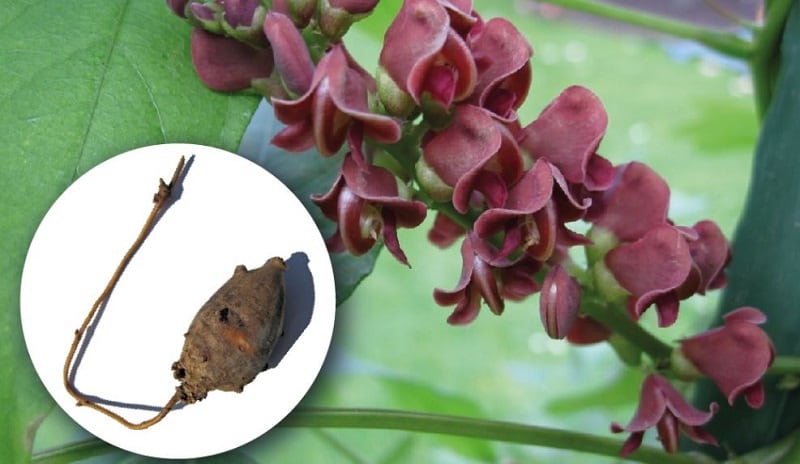A native American plant has potential as a commercially viable Northern European-grown rootcrop, mainly due to its resistance to extreme climate and nutritional quality.
Apios Americana – potato bean which is high in protein – is a perennial tuber crop commonly found in Florida, Texas and Colorado and was once a staple foraged food source. The tubers are similar in flavour and texture to potato.
Researchers from Scotland studied the potato bean to unearth whether it could be used as part of a healthier and biodiverse diet, while also potentially helping the environment by being a dietary source of protein.
Benefits for human and planetary health
Dr Madalina Neacsu from the Rowett Institute at the University of Aberdeen told FoodNavigator the potato bean fixates nitrogen in the soil and increases agrobiodiversity.
“We studied the Apios Americana – or potato bean – as part of our research into novel and sustainable sources of protein and fibre in a bid to find alternatives and to diversify our dietary choices.”
She said that most people’s protein intake in the UK currently comes from animal sources. “However, if we could diversify our recommended dietary intake of protein from plant-based sources, such as the potato bean, this could contribute towards meeting climate targets as well as improving health.
She added the species is known to thrive under a wide range of agricultural conditions. “The potato bean has shown previously that it can adapt to a wide geographical range and has a high tolerance to a wide range of conditions, so it is able to grow in environments away from America.”
The potato bean also offers tantalising potential nutritional benefits for human health as an excellent source of protein and fibre, she observed. “It is a rich source of protein and fibre, representing a good way to boost fibre consumption which can be a struggle for many people.
“We also found in Apios samples that it contained all the essential amino acids that we need to make proteins in the body. The peel and leaves are also a rich source of the bioactives which are normally found in superfruits such as berries.”
Study highlights:
- Apios tubers and co-products are rich sources of dietary protein and fibre.
- Apios samples contained all the essential amino acids.
- Apios tubers are particularly rich in microelements such as K, Ca, Fe, Zn, and Mn.
- Apios peel, leaves and rhizomes are rich sources of anthocyanins: cyanidin, delphinidin.
- Apios represents a potential for human and livestock dietary biodiversification.
Solution to the need to diversify diets and build resilience in agriculture
Dr Max Coleman from Royal Botanic Garden Edinburgh said the potato bean is one example of the potential of wild plants to diversify our diet and build resilience in agriculture.
“There are an estimated 30,000 edible plants available to us and yet widespread consumption only involves about 150 of them. Just 12 crops provide 80% of our calories, meaning we rely on less than 1% of the food plants available to us. There is considerable exciting work ahead.”
Dr Robin Walker from Scotland’s Rural College added: “There seems to be definite potential in the implementation of new crops and foods being grown here in the UK that could help people maintain a more balanced diet. Further trials are now needed to gain more insight into the best way to grow and utilise Apios on a broader scale, taking into account its perennial growth habit and the potential to use its foliage and seeds as well as the tubers.”
Dr Neacsu said her team was now planning trials in Scotland to answer more agricultural aspects of the crop and to investigate how scalebale it could be. “Harvesting strategies also need to be investigated if the plant is to be developed as a potentially viable crop for Northern European agriculture, and possibly as part of an urban farming system as well as on a broader scale,” she said.
Source
'Nutritional and chemical profiling of UK-grown potato bean (Apios americana Medik) reveal its potential for diet biodiversification and revalorisation'
Journal of Food Composition and Analysis




